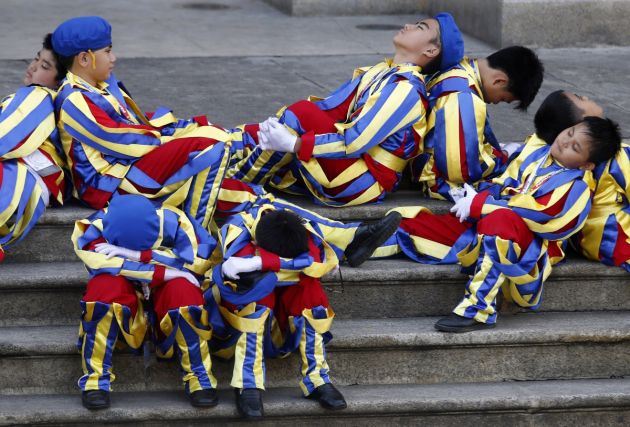Pope urges Philippine leaders to cut graft, seek equity in resource sharing

MANILA - Pope Francis has called on leaders in Asia and the Philippines to reject corruption as a means of overcoming "scandalous social inequalities" in a nation where many people live in dire poverty.
Francis made his call in his first speech on his five-day visit to the Philippines, where more than 80 percent of the 108 million population are Roman Catholics and he is getting tumultuous welcomes.
He addressed dignitaries, including President Benigno Aquino, at the Malacanang presidential palace in Manila on January 16 calling on "everyone, at all levels of society, to reject every form of corruption which diverts resources from the poor."
"Today the Philippines, together with many other countries in Asia faces the challenge of building on solid foundations a modern society," said the 78-year-old Argentine pontiff.
Such a society is "respectful of authentic human values, protective of our God-given human dignity and rights, and ready to confront new and complex political and ethical questions. "
The Pope noted that man in the many Filipinos have spoken up for the need for political leaders to have outstanding "honesty, integrity and commitment to the common good.
"In this way they will help preserve the rich human and natural resources with which God has blessed this country.
"Thus will they be able to marshal the moral resources needed to face the demands of the present, and to pass on to coming generations a society of authentic justice, solidarity and peace," said Francis.
President Aquino has waged a strong campaign against corruption since he became the national leader in 2010.
He has received international praise for his efforts, but he has also been questioned about fighting corruption from within his own ranks.
The pontiff said that essential to the attainment of Philippine national goals is the imperative "of ensuring social justice and respect for human dignity."
Francis said, "The great biblical tradition enjoins on all peoples the duty to hear the voice of the poor.
"It bids us break the bonds of injustice and oppression which give rise to glaring, and indeed scandalous, social inequalities."